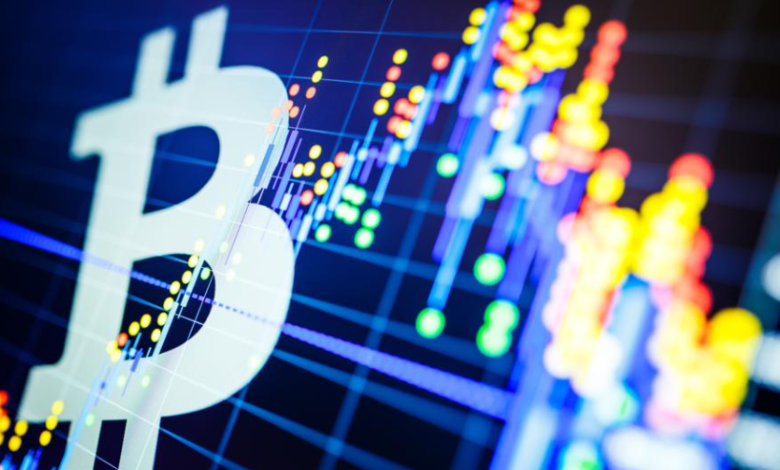Top 15 Reasons Why a Regulated Crypto Exchange Is Essential for Secure Trading

Introduction to Regulated Crypto Exchanges
What is a Regulated Crypto Exchange?
A regulated crypto exchange is a digital platform that operates under official oversight from governmental or financial regulatory authorities. These platforms are authorized to conduct cryptocurrency transactions, maintain security standards, and ensure compliance with legal frameworks. Unlike unregulated exchanges, regulated platforms follow Know Your Customer (KYC) and Anti-Money Laundering (AML) policies, providing greater safety and accountability for users.
Evolution of Crypto Exchange Regulations
Since the early days of cryptocurrency, the lack of oversight led to multiple scams, hacks, and fraud cases. Over time, governments worldwide began enforcing laws to regulate crypto exchanges. This evolution marked a shift from decentralized chaos to a more mature, legally compliant financial ecosystem.
Key Features of a Regulated Crypto Exchange
Licensing and Legal Compliance
Every regulated crypto exchange must secure a license from financial authorities such as the U.S. Securities and Exchange Commission (SEC), UK’s Financial Conduct Authority (FCA), or Germany’s BaFin. These licenses ensure the platform meets operational, financial, and security requirements.
Security Protocols and User Verification
To protect users, regulated exchanges implement:
- Cold wallet storage
- Multi-signature authentication
- Two-factor authentication (2FA)
- Advanced encryption
KYC verification includes ID verification, facial recognition, and document submission to prevent fraud.
Transparency and Audits
Regulated platforms must conduct regular third-party audits and publish transparent financial reports. This builds trust and allows users to make informed investment decisions.
Advantages of Using a Regulated Crypto Exchange
Enhanced Security Measures
Regulated exchanges invest in top-tier cybersecurity systems, protecting users from phishing, hacking, and other cyber threats. Insurance funds are also often in place to cover potential losses.
Reduced Risk of Fraud and Scams
Due to compliance checks and financial oversight, the likelihood of fraud is drastically reduced. Users are protected under legal frameworks in case of disputes.
Improved User Confidence
With proper regulation, users know their funds are secure, customer service is reliable, and the platform won’t disappear overnight.
Global Regulatory Landscape
How Different Countries Regulate Crypto Exchanges
- USA: Overseen by the SEC and FinCEN
- UK: Regulated by the FCA
- Japan: Governed by the Financial Services Agency (FSA)
- Germany: Supervised by BaFin
- Singapore: Regulated under the MAS
Role of Financial Authorities
Authorities ensure exchanges comply with laws regarding consumer protection, tax obligations, and anti-fraud systems. They also impose fines and revoke licenses if standards are violated.
Comparing Regulated vs Unregulated Exchanges
| Feature | Regulated Exchange | Unregulated Exchange |
|---|---|---|
| Licensing | Yes | No |
| Security | High | Variable |
| Legal Oversight | Yes | No |
| KYC Required | Yes | Rarely |
| Risk | Low | High |
| Transparency | Strong | Weak |
Real-life examples include the fall of Mt. Gox due to lack of regulation and the success of Coinbase due to strict compliance.
Popular Regulated Crypto Exchanges in 2025
- Coinbase: U.S. licensed, insured, and beginner-friendly
- Kraken: Robust security with worldwide regulation
- Bitstamp: European leader in transparent trading
- Gemini: New York-licensed with strong insurance policies
These platforms meet high standards for safety, legality, and user experience.
How to Identify a Regulated Crypto Exchange
- Check Licenses: Look for issued licenses on the platform’s footer or legal page.
- Verify Compliance: Confirm their KYC/AML policies.
- Look for Transparency: Regular reports, audits, and press releases are good signs.
Regulatory Bodies Overseeing Crypto Markets
- SEC (USA) – Security and investment oversight
- FCA (UK) – Financial integrity and consumer protection
- MAS (Singapore) – Balanced innovation and compliance
- BaFin (Germany) – Stringent banking and crypto rules
These bodies guide exchanges to maintain safe trading practices.
Compliance and KYC in Regulated Exchanges
Why KYC/AML Matters
KYC and AML are critical in identifying users and stopping criminal activity. They:
- Reduce identity theft
- Prevent money laundering
- Improve financial accountability
User Benefits
Despite being time-consuming, KYC ensures your money is safe and secure, especially in the case of account recovery or disputes.
Future Trends in Crypto Exchange Regulation
Towards Global Standardization
Bodies like the Financial Action Task Force (FATF) are pushing for worldwide crypto rules. This would make it easier to use exchanges across countries with unified regulations.
Tech in Compliance
AI tools and blockchain-based auditing are revolutionizing compliance. Smart contracts automate rules, and real-time monitoring detects threats instantly.
Impact on Investors and Institutions
Institutions Love Regulation
Banks, hedge funds, and pension firms only use regulated exchanges to ensure legality and trust. It helps them meet internal compliance rules.
Retail Users Benefit Too
Smaller traders gain confidence, faster support, and secure storage on regulated platforms. Exchanges like Gemini even insure your wallet up to a certain limit.
Challenges for Regulated Exchanges
- Cost of Compliance: Audits, lawyers, and systems can be expensive.
- Slower Feature Rollout: Regulatory approval delays new coin listings or features.
- Regional Restrictions: Not every country allows crypto trading yet.
Despite this, most users prefer safety over unregulated flexibility.
How to Choose the Right Regulated Crypto Exchange
- Confirm licensing status
- Compare fees
- Read user reviews
- Check supported countries and coins
- Test customer support
Platforms like Kraken, Binance.US, and Gemini excel in these categories.
Conclusion
A regulated crypto exchange isn’t just a trading platform—it’s your gateway to safe, compliant, and sustainable investing in the digital age. Whether you’re a beginner or an institution, choosing a regulated platform is one of the smartest decisions you can make in 2025.
FAQs
1. What makes a crypto exchange regulated?
A regulated crypto exchange holds licenses from official financial authorities and complies with KYC, AML, and data protection laws.
2. Is it safe to use unregulated crypto platforms?
Generally, no. They lack security standards and legal protections, making users vulnerable to fraud or loss.
3. Which are the top regulated exchanges in 2025?
Coinbase, Kraken, Gemini, and Bitstamp are leading the way with full compliance and transparent operations.
4. Can a regulated exchange still get hacked?
Yes, but their security systems and insurance mechanisms significantly reduce the risk and impact.
5. Do all countries require crypto exchange regulation?
Not all. Some like the U.S., UK, and Japan are strict, while others are still forming their laws or take a hands-off approach.
6. What documents do I need to sign up on a regulated exchange?
Typically, a government-issued ID, proof of address, and sometimes a selfie or video verification.




